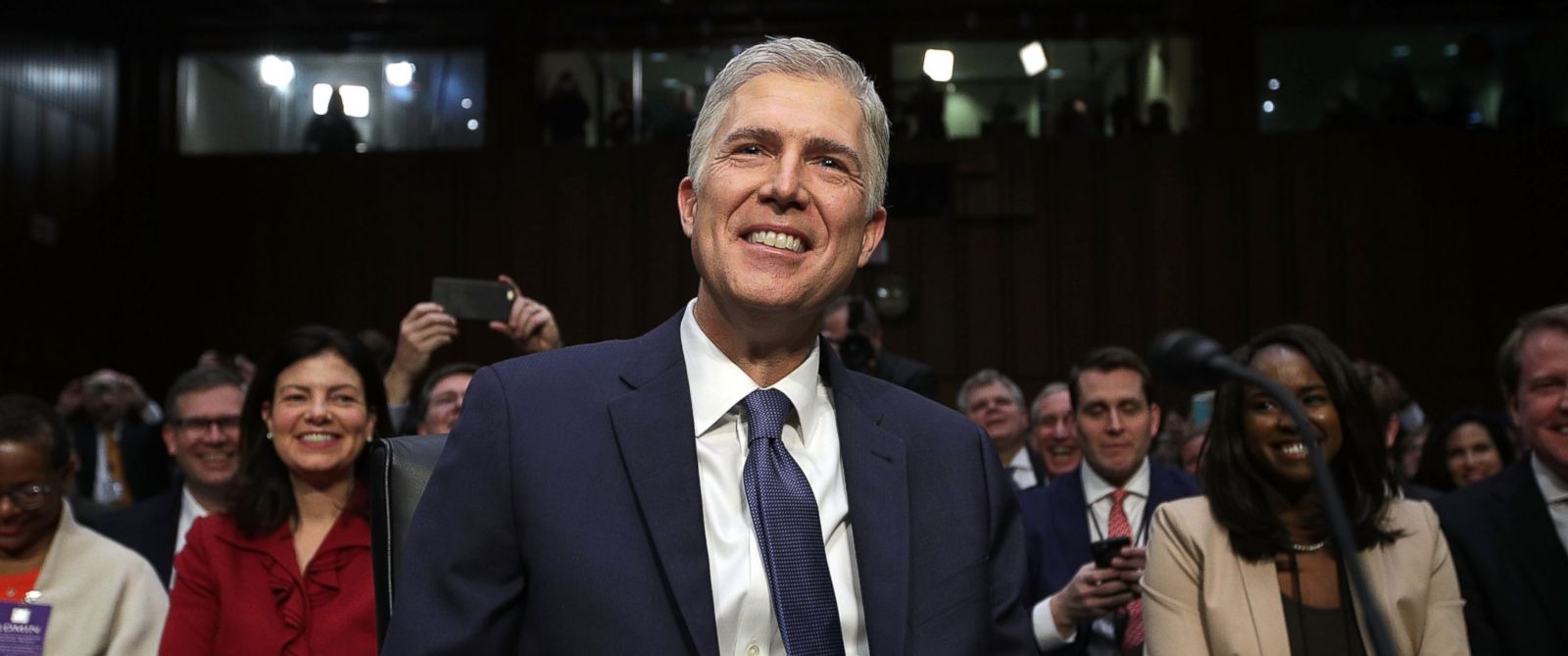By Katherine Coble || News Editor

This week has been an eventful one for Neil Gorsuch. The 49-year-old Colorado native and current appellate judge on the United States Court of Appeals for the Tenth Circuit is now most famous for being Donald Trump’s Supreme Court nominee to fill the space left by Anton Scalia’s unexpected death in February 2016. Gorsuch completed his confirmation hearing in the Senate on Wednesday following three days of extensive questioning from both Republican and Democrat Senators.
Throughout the hearings, Senate Democrats have attempted to portray Gorsuch as incapable of being an independent check on a Republican legislature, while Senate Republicans have threatened to change Senate rules in order to get Gorsuch confirmed.
Like most Supreme Court justices going through a confirmation hearing, Gorsuch revealed little about his personal views on controversial legal issues like abortion and affirmative action. Los Angeles Times writer David G. Savage quipped that confirmation hearings are “a peculiar Washington ritual in which inquisitive senators gather before TV cameras to hear an aspiring justice politely refuse to answer their questions on all the pressing legal issues of the day.”
Gorsuch fit the mold. He refused to elaborate whether he believed President Donald Trump has violated the Emoluments Clause and, despite emphasizing the importance of judicial precedent for Roe v. Wade, would not say under what conditions he might overturn it.
Gorsuch is an “originalist” interpreter of the Constitution, much like Anton Scalia, whom he hopes to replace. This philosophy means that Gorsuch places significant weight on the specific words used in the Constitution, regardless of any unfortunate rulings that may result.
Senate Democrats attempted to use some of Gorsuch’s more technical rulings as examples of his emotionlessness or ignorance of consequences. For example, Gorsuch ruled against a commercial truck driver that was fired for leaving his vehicle to get assistance in freezing cold temperatures. He also ruled against an autistic child in a case about disability rights – a ruling which was unanimously overturned by the Supreme Court of the United States while Gorsuch’s hearings were occurring.
When forced to explain his rulings in these cases, Gorsuch remained steadfast in his belief that he was adhering to precedent and interpreting the law as it was written – even in the case with the Supreme Court ruled against him, following the same precedent.
Gorsuch also distinguished himself from other originalist interpreters like Scalia by expressing praise for a more progressive application of the fourteenth amendment. According to the Wall Street Journal, after Senator Diane Feinstein expressed “concern that the writers of the Constitution and subsequent amendments — like the 14th Amendment guarantee of equal protection under the law — were written at a different cultural moment,” Gorsuch admitted that the drafters of these laws were “racists” and “sexists”, but the legislation they created guarantees equal protection for all. He attempted to reassure his critics that “No one is looking to return us to horse and buggy days.”
Senate Republicans seem overwhelmingly optimistic about Gorsuch’s chances at getting confirmed. News outlets like USA Today described the judge as having “sailed’ through the hearing and, after the second day of his hearing, said that his “steady performance through two grueling days of testimony lent an air of inevitability to the process that bordered on coronation.”
Republicans have a 52-48 majority in the Senate and need 60 votes to get Gorsuch confirmed. However, Democrats like minority leader Charles Schumer have insisted they will filibuster Gorsuch’s confirmation vote. Republicans have responded by saying they may invoke the Senate’s “nuclear option” and change the Senate rule that allows filibusters of nominees. According to The Washington Post, this has lead to “competing views among Democrats about whether to filibuster Gorsuch’s nomination… or instead avoid confrontation and preserve the filibuster threat for the future.”
It is currently unknown when exactly the Senate will vote to confirm Gorsuch. Republicans hope to do so before Congress breaks for its Easter Recess on April 7.
First-year Katherine Coble is the News Editor. Her email is kcoble@fandm.edu.
